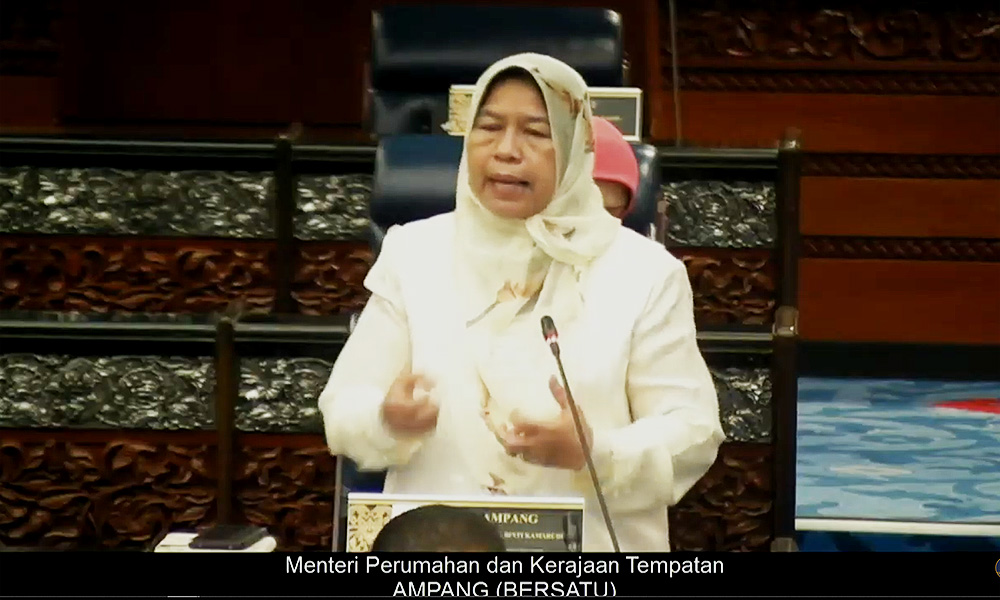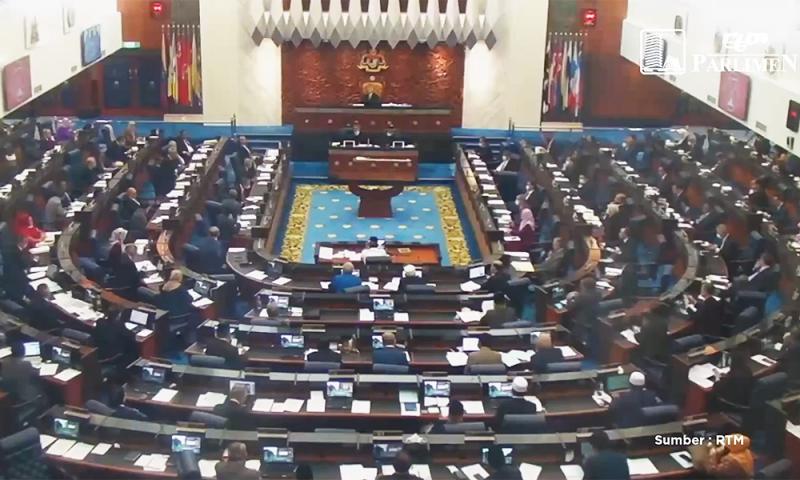LETTER | This 2-majority govt must stop acting like it commands 90pct support
LETTER | Thankfully, with the reconvening of Parliament, Malaysia has now escaped the unwanted record of being one of only a few nations to shutdown its legislative body during the time of a global pandemic.
Better late than never, I suppose.
Most countries opted for an online parliamentary sitting due to the Covid-19 pandemic so that their plans to combat the pandemic could be thoroughly scrutinised. These include the Philippines, Maldives, Mexico, Mongolia, South Africa and Tanzania, to name just a few.
In Malaysia, our youth, through the successful ‘Parlimen Digital’ initiative, also proved that this could definitely be done in our country.
However, we should all know by now that the decision to never convene Parliament, whether physically or virtually, was a deliberate choice by the Perikatan Nasional (PN) government for clear political reasons. Alas, last Monday saw Prime Minister Muhyiddin Yassin’s alleged ‘scheme of things’ bear fruit, although its yield must be less than what the premier had in mind.
Politics is never static and it is highly debatable whether Muhyiddin would command the majority if Parliament were to reconvene much earlier. As it stands now, the unprecedented no-confidence vote is unlikely to proceed, although it's all rather academic now.
Muhyiddin, and by extension the PN, do indeed command the majority of the House, but by the thinnest of margins of two seats.
Naturally, such razor-thin margins raise the question of whether this coalition - which to this day is yet to be registered - could stay united and govern the nation.

After all, in terms of MP support, PN is the weakest government in Malaysian history. Even during the recent Parliament sessions, we can see the cracks within the coalition when Umno's Noh Omar and Muafakat Nasional criticised Housing and Local Government Minister Zuraida Kamaruddin’s (photo) stance on local council elections.
Furthermore, prominent leaders from Umno such as Mohamad Hasan, Tengku Razaleigh Hamzah, Shahrir Samad and more have already made their voices heard about their concerns and dissatisfaction with the status quo of the coalition and have called for the dissolution of Parliament to give the mandate back to the rakyat.
Of course, in politics, nothing is ever what it seems and Umno’s push for a snap poll is just an opportunist move to seize back the leadership of the country when other parties are seemingly at their weakest.
Regardless of whether a fresh general election is on the cards or not, based on the trends of recent GEs, it would be unlikely for any coalition to command more than 55 percent support from the rakyat.
Gone are the days of Umno being able to win more than 100 out of 222 seats by itself and it is unlikely to return any time soon, let alone in a post-Pakatan Harapan world.
In lieu of this developing ‘new normal’, the unruly shoutings that interrupted the speech by Dr Mahathir Mohamad in Parliament last Monday raised a legitimate concern.
Kinabatangan MP Bung Moktar Radin is infamous for his candid outbursts and when he voiced out how Mahathir was the one who taught them the type of politicking which PN now practices, it shows that the current crop of politicians are still stuck in the BN-era mindset that the government commands total control of not only the Parliament, but the population’s trust as well. Yet, this hasn’t been the case since 2008.
In 2013, the then ruling BN-led government lost the popular vote for the first time since 1969. Five years earlier in GE12, the signs of BN losing its grasp on the hearts of voters began to show when they lost control of economically-rich states Selangor and Penang to Barisan Alternatif, later renamed as Pakatan Rakyat.
We all know what happened in GE14.
It is then quite unfortunate for analysts and politicians to only view PN’s 111-109 majority vote in Parliament as a telltale sign of PN’s weakness, rather than the blossoming of democracy in Malaysia.
An almost 50-50 split of Parliament would not only encourage bipartisanship among MPs, but also pave the way for scrutiny of government policies based on the very concept of check and balance that the legislative body stands for.

Unfortunately, instead of respecting and prescribing to the notion of separation of power, Muhyiddin and PN decided to besmirch it with the removal of Mohamad Ariff Md Yusof (photo) as Dewan Rakyat speaker before the end of this parliamentary term, without any valid reason.
This not only goes against Parliament’s Standing Orders but also against the Federal Constitution as well. The appointment of Azalina Othman as deputy speaker, without any vote, further adds insult to injury.
It is regrettable that during a time when the Malaysian government needs to adapt to a society that wants a more mature democracy, PN continued the BN-era of an authoritarian-like rule that sees no clear distinction between the Legislative and the Executive.
PN’s backbenchers claim that the change of government necessitates a Dewan Rakyat speaker that is a political appointee from their end just shows how clueless they are of the very function of the House in which they sit.
Hence, this two-majority government must stop acting like it commands 90 percent support of Parliament as well as the popular vote when they clearly don’t.
It’s time for these politicians to accept the reality of this ‘new normal’ of Malaysian politics, where no party shall command an overwhelming majority.
Space must be given for the opposition to function as what the Westminster system prescribes. Through what transpired in the removal of the Dewan Rakyat speaker last Monday, it just goes to show that this is a system which PN clearly does not respect.
The writer is a Malaysian political observer
The views expressed here are those of the author/contributor and do not necessarily represent the views of Malaysiakini.
RM12.50 / month
- Unlimited access to award-winning journalism
- Comment and share your opinions on all our articles
- Gift interesting stories to your friends
- Tax deductable
